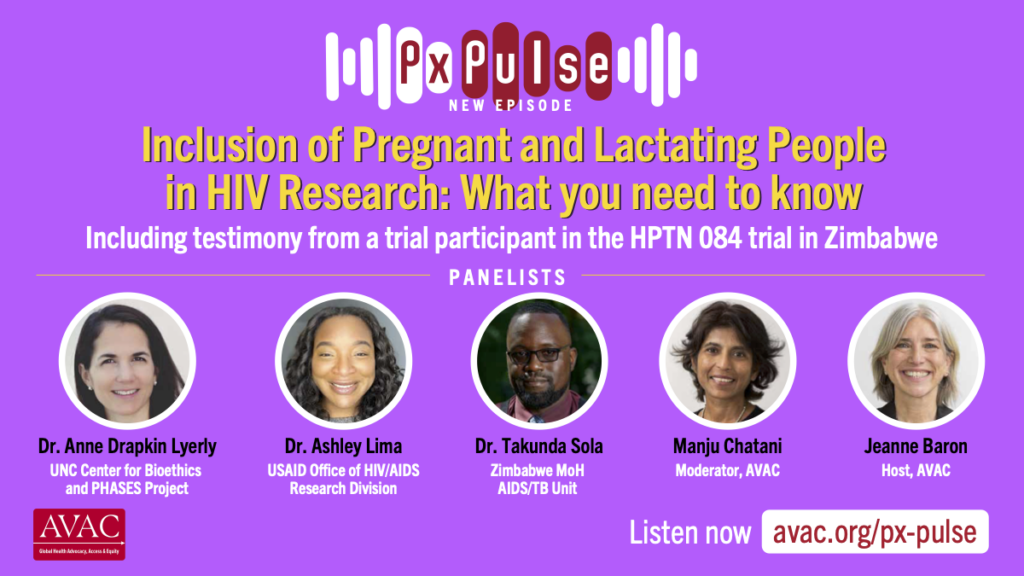We are thrilled to announce the Good Participatory Practice (GPP) Body of Evidence, a new online clearinghouse of case studies and analyses demonstrating the power of GPP, along with tools, templates and trainings for GPP implementation. The resources we’ve gathered for this much-needed “one-stop GPP shop” can be used to show the impact of GPP to date, how it can be measured going forward, and its practical application in real-time.

The Good Participatory Practice Guidelines have been shaping and improving HIV prevention research since 2007. They provide a global reference guide for ethical and effective stakeholder engagement, helping ensure the priorities of trial participants and their communities are centered in clinical trials and broader research agendas.
Over the past 16 years, the original GPP guidelines for HIV prevention have been issued in 10 languages and adapted to other disease areas, including tuberculosis, COVID-19, and emerging pathogens. GPP has given rise to a robust global community of practice, with an expansive history of lessons learned and success stories for the world to build upon.
But GPP implementation is far from easy. Because GPP looks different in every context and outcomes can be difficult to quantify, engagement work is often seen as secondary to clinical processes, and therefore undervalued and under-resourced. The GPP Body of Evidence demonstrates the contribution of GPP to the research enterprise, and the professionalization of GPP implementation.
Rest assured that this is not a one-off effort! Stay tuned for a webinar series in 2024 with key partners including WHO and Wellcome Trust that will highlight critical issues in stakeholder engagement in research, linking to corresponding resources from the Body of Evidence. And we’ll be keeping the Body of Evidence up to date – so please reach out if you have resources to add.
It’s time for GPP to become an international standard for clinical research. Making that case and making it happen, using the GPP Body of Evidence, has never been easier.
